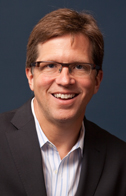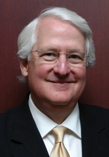Citing substantial errors by U.S. District Judge Ed Kinkeade and inappropriate and unequivocally deceptive conduct by Texas plaintiff’s attorney Mark Lanier, a federal appeals court has reversed a Dallas jury’s $502 million verdict against Johnson & Johnson and one of its subsidiary companies in the hip implant litigation.

A three-judge panel of the U.S. Court of Appeals for the Fifth Circuit ruled late Wednesday that Lanier concealed payments to two highly influential expert witnesses and Judge Kinkeade “abused his discretion” by allowing Lanier to make arguments to the jury that were improper and inadmissible.
U.S. Circuit Judge Jerry Smith, in a scathing 57-page unanimous opinion, wrote that “the errors are sufficiently egregious, multiple and prejudicial.”
“Because the taint is unmistakable, the verdict cannot stand,” Judge Smith stated.
In March 2016, a Dallas jury ruled that DePuy Orthopaedics and its parent company, Johnson & Johnson, manufactured and negligently sold defective metal-on-metal hip implants to five Texas residents. The jury awarded $142 million in actual damages and $360 million in punitive damages. Judge Kinkeade later reduced the judgment to $151 million.
Johnson & Johnson appealed.
In Wednesday’s decision, the Fifth Circuit panel ruled that two of the five plaintiffs – 76-year-old former Navy Seal Robert Peterson and 79-year-old Boerne resident Donald Greer – did not present a sufficient amount of evidence to prove their allegations. Their cases were dismissed.
The three-judge panel reversed the verdicts favoring the other three plaintiffs and ruled they could have their cases retried.

The appeal judges point to Lanier’s introduction of evidence continued in a federal Deferred Prosecution Agreement that an affiliated company of J&J paid bribes to Saddam Hussein’s Iraqi government. Judge Kinkeade allowed the argument because J&J had allegedly opened the door when it discussed the company’s corporate culture and marketing practices.
“But that suggestion is as dubious as it is vague,” Judge Smith wrote. “The record makes plain that the DPA and Hussein were ‘wafted before the jury to trigger their punitive instinct.’ Lanier repeatedly referenced bribes to the Hussein ‘regime,’ despite [the fact] that the alleged bribes involve neither DePuy nor its products.
“Crucially, he then invited the jury to infer J&J’s liability based solely on that. Lanier tainted the result by inviting the jury to infer guilt based on no more than prior bad acts, in direct contravention of Rule 404(b)(1). That alone provides grounds for a new trial.”
The Fifth Circuit panel also blasted Lanier for not disclosing payments he made to two of his expert witnesses, who were highly influential with the jury.
Lanier argued to the jury that his witnesses were unpaid and that meant they were telling the truth without conflicts. In reality, Lanier paid $10,000 to a charity for one of the experts.
Within a few weeks of the March 2016 verdict, Lanier paid the same two experts – Dr. Bernard Morrey and his son, Dr. Matthew Morrey – checks totaling $65,000.
“Now, to the question whether Lanier, knowingly or unknowingly, misled the jury in representing repeatedly that the Morreys had neither pecuniary interest nor motive in testifying,” Judge Smith wrote. ‘The facts speak pellucidly: The pre-trial donation check, the expert’s expectation of compensation, and the post-trial payments to both doctors are individually troubling, collectively devastating.”
The Fifth Circuit panel agreed that the law requires them to give great deference to decision by trial judges.
“This is the rare case in which counsel’s deceptions were sufficiently obvious, egregious, and impactful to penetrate the layers of deference that would ordinarily shield against reversal,” the court stated. “Once it was ‘formally’ decided that Morrey Sr. would testify, Lanier’s failure to disclose the donation, and his repeated insistence that Morrey Sr. had absolutely no pecuniary interest in testifying, were unequivocally deceptive.”
(Editor’s Note: An initial version of this article mistakenly stated that J&J lawyers paid the experts. It was the plaintiff’s lawyers who made the payments. We apologize for this error.)
